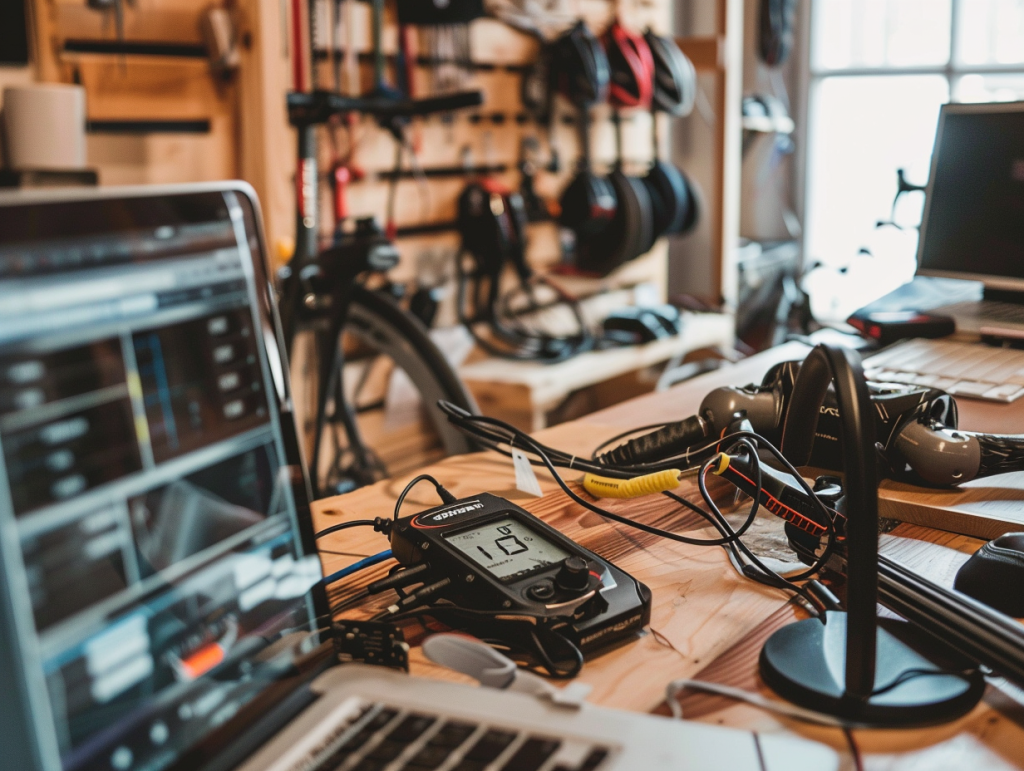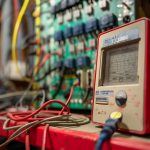Understanding the Uses of a Power Meter
A power meter is an essential instrument in various fields, including electrical engineering, energy management, and athletics. Power meters measure the amount of electrical power, typically in watts, consumed by a device or an entire system, providing valuable data for performance analysis, cost management, and energy efficiency.

A power meter is used to measure the amount of electrical power a device or system consumes, aiding in performance analysis, energy efficiency, cost management, and various other applications.
Key Features of a Power Meter
1. Measurement Capabilities
Power meters can measure various parameters, including:
- Voltage: The electrical potential difference between two points.
- Current: The flow of electric charge.
- Power (Watts): Calculated as the product of voltage and current (P = V × I).
- Energy (Watt-hours): The total power consumption over time.
- Power Factor: The efficiency of power usage in AC systems.
2. Display and Interface
Modern power meters feature digital displays that provide clear, real-time readouts of measured values. Interfaces vary from simple readouts to advanced graphical interfaces that can offer detailed analytical data.
3. Data Logging and Connectivity
Advanced power meters have data logging capabilities and can connect to computers and networks for continuous monitoring and analysis. Connectivity options might include USB, Ethernet, Wi-Fi, or Bluetooth.
Types of Power Meters
1. Plug-In Power Meters
Plug-in power meters are portable devices designed to measure the power consumption of individual appliances. Users simply plug the device into a wall socket and then plug the appliance into the power meter.
Features and Benefits
- Ease of Use: Simple plug-and-play functionality.
- Portability: Can be easily moved from one appliance to another.
- Applications: Ideal for household and small office environments for measuring power consumption of individual devices.
2. Clamp-On Power Meters
Clamp-on power meters use current clamps to measure electrical parameters without directly connecting to the circuit. They are commonly used for measuring power in electrical panels and large industrial systems.
Features and Benefits
- Non-Invasive: Measures power without disconnecting any wires.
- Safety: Reduces the risk of electrical shock.
- Applications: Suitable for industrial environments and large electrical systems.
3. Whole-House Power Meters
Whole-house power meters are installed at the main electrical panel to monitor the total power consumption of a building. These meters provide comprehensive data on energy usage for the entire premises.
Features and Benefits
- Comprehensive Monitoring: Tracks power consumption for the entire building.
- Energy Management: Helps identify energy-saving opportunities.
- Applications: Used in residential, commercial, and industrial buildings for overall energy management.
4. Portable Power Analyzers
Portable power analyzers are highly versatile and can measure various electrical parameters in different settings. They are often used by electricians and engineers for troubleshooting and analyzing electrical systems.
Features and Benefits
- Versatility: Measures multiple electrical parameters.
- Portability: Easy to transport and use in various locations.
- Applications: Ideal for fieldwork, diagnostics, and detailed analysis.
Applications of Power Meters
1. Energy Management
Power meters play a crucial role in monitoring and managing energy consumption. By providing detailed data on power usage, they help in identifying energy waste and implementing cost-saving measures.
- Energy Audits: Conducting audits to assess the energy consumption of buildings and systems.
- Efficiency Improvements: Identifying inefficient devices and implementing measures to improve energy efficiency.
- Cost Management: Monitoring power usage to manage electricity costs effectively.
2. Electrical Maintenance and Troubleshooting
In electrical engineering and maintenance, power meters are used to diagnose and troubleshoot issues within electrical systems.
- Load Balancing: Ensuring electrical loads are balanced across the system to prevent overloads.
- Fault Detection: Identifying electrical faults and irregularities in power supply.
- Preventive Maintenance: Monitoring electrical parameters to anticipate and prevent potential failures.
3. Renewable Energy Systems
Power meters are essential in monitoring the performance and efficiency of renewable energy systems like solar and wind power installations.
- Performance Monitoring: Tracking the power output and efficiency of renewable energy systems.
- Grid Integration: Measuring the power fed into or drawn from the electrical grid.
- Optimization: Analyzing data to optimize the performance of renewable energy installations.
4. Research and Development
In research and development, power meters are used to test and evaluate the performance of new electrical components and systems.
- Component Testing: Measuring power consumption and efficiency of electrical components.
- System Analysis: Evaluating the performance and reliability of new electrical systems.
- Innovation: Using data to drive innovations and improvements in electrical engineering.
5. Athletics and Sports
In the context of athletics, especially cycling, power meters are used to measure the power output of athletes.
- Performance Tracking: Monitoring an athlete’s power output to track performance improvements.
- Training Optimization: Analyzing data to optimize training regimens and improve efficiency.
- Competitive Edge: Providing insights to gain a competitive advantage in sports like cycling.
Choosing the Right Power Meter
1. Accuracy and Precision
Ensure the power meter provides accurate and precise measurements suitable for your application. Higher accuracy models are essential for detailed analysis and research, while general-purpose models may suffice for household use.
2. Measurement Range
Select a power meter that covers the necessary measurement range for your tasks. Ensure it can handle the voltage, current, and power levels typical of your applications.
3. Connectivity and Data Logging
Advanced power meters with data logging and connectivity features can provide continuous monitoring and detailed analysis, which are beneficial for energy management and maintenance tasks.
4. Portability and Ease of Use
For fieldwork and versatile applications, portable and user-friendly power meters are advantageous. Plug-in meters are great for quick measurements, while clamp-on meters are ideal for non-invasive testing.
Conclusion
Power meters are versatile tools used for measuring electrical power consumption across various applications, including energy management, electrical maintenance, renewable energy systems, research and development, and even athletics. With different types of power meters available, such as plug-in meters, clamp-on meters, whole-house meters, and portable power analyzers, it’s crucial to choose the right one based on accuracy, measurement range, features, and specific application.
By understanding the functions and benefits of power meters, you can effectively monitor and manage power usage, optimize energy efficiency, troubleshoot electrical issues, and enhance overall performance in your projects or daily activities.
FAQ
- What is a power meter used for?
A power meter is used to measure the amount of electrical power consumed by a device or system, aiding in performance analysis, energy efficiency, cost management, and various other applications. - What types of power meters are available?
Types of power meters include plug-in power meters, clamp-on power meters, whole-house power meters, and portable power analyzers. - Can power meters help in reducing energy consumption?
Yes, power meters provide detailed data on power usage, helping to identify energy waste and implement cost-saving measures, thereby reducing energy consumption. - What is the importance of accuracy in a power meter?
Accuracy ensures that the measurements are reliable and precise, which is crucial for diagnosing issues, ensuring safety, and verifying energy consumption for cost management and efficiency improvements. - Are power meters used in renewable energy systems?
Yes, power meters are essential for monitoring the performance and efficiency of renewable energy systems, tracking power output, and optimizing the performance of solar, wind, and other renewable energy installations.

